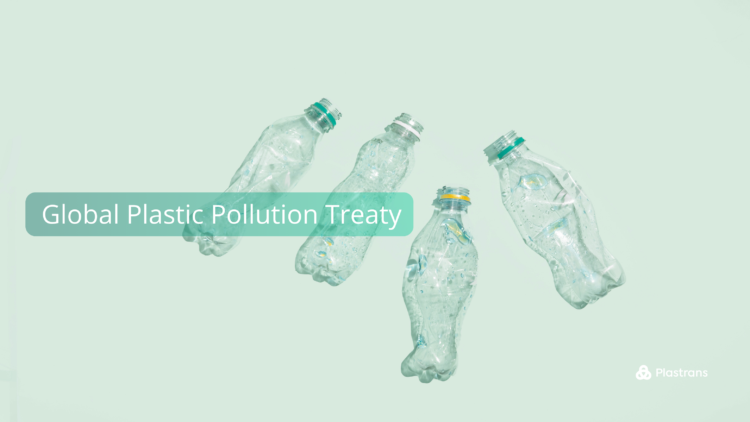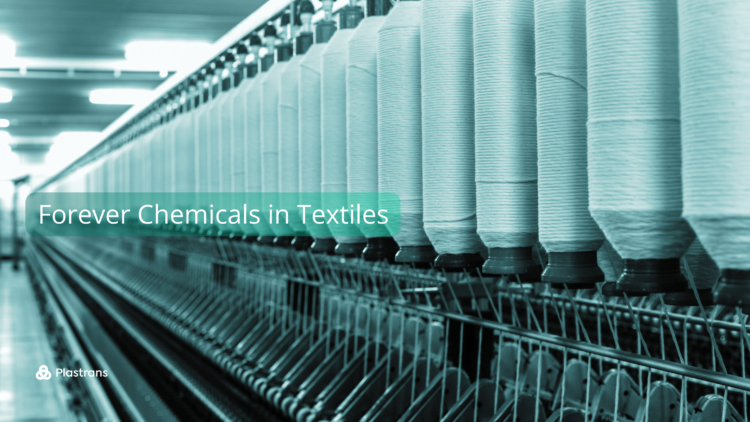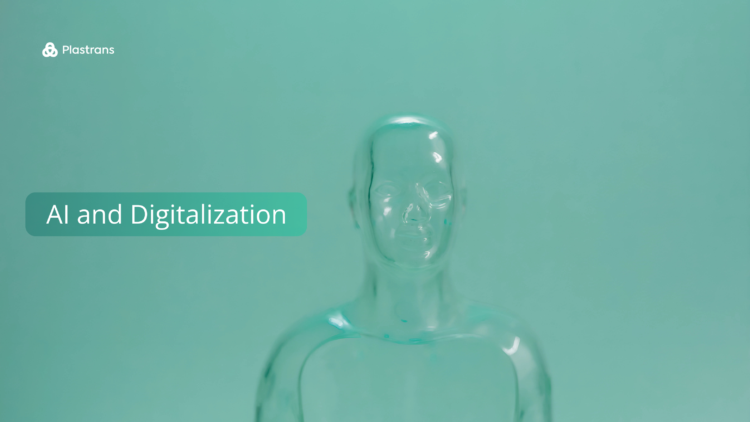
Social Impact
Plastrans operates pursuant to the Sustainable Development Goals 2030.
The United Nations Sustainable Development Agenda 2030 is a pivotal global initiative stipulated in order to transform our planet into a more sustainable and inclusive ecosystem for all living creatures. The Agenda entails 17 Sustainable Development Goals that have been conceived in order to alleviate and dismantle the biggest threats to life on our planet. In addition to the goals that can be integrated into our operational activities, each year we select a handful, whose attainment we endorse by supporting specific projects financially.

SDG 4: Quality Education
At Plastrans Technologies GmbH, we recognize that education and lifelong learning are fundamental to building a sustainable future. Our commitment to SDG 4 extends beyond conventional literacy to encompass “environmental literacy.” In collaboration with our partners, we provide educational boxes on plastics to local schools, fostering awareness of responsible plastic use and promoting informed decision-making among future generations.
We are proud to partner with GLORIA Implacement e.U., offering comprehensive education and apprenticeship programs. Through these initiatives, apprentices gain practical experience in a supportive and high-quality environment, working toward a professional apprenticeship diploma.
In cooperation with the FH Upper Austria, we have developed a unique program that combines advanced academic education with hands-on professional experience. This initiative allows participants to pursue a full-time position while enhancing their theoretical knowledge, ensuring a balanced and comprehensive learning journey.

SDG 4: Quality Education
We also support students during their academic pursuits by offering flexible part-time positions through a structured three-phase program. In the first phase, students assume a defined role within the company, gaining practical insights into our operations. The second phase allows students to complete their final thesis with the support and resources of Plastrans Technologies. In the third phase, successful candidates transition to full-time positions, integrating their academic expertise with professional practice.
At Plastrans Technologies, we foster a culture of continuous learning for all team members. We actively encourage and support professional development through further education opportunities, empowering our team to stay at the forefront of industry advancements.
By investing in education and professional growth, we contribute to SDG 4 and equip our employees and future professionals with the skills and knowledge necessary to drive innovation and sustainability forward.

Goal 6: Clean Water and Sanitation
The goal is to provide all people with access to safe water sources and sanitation. We do our part by ensuring highest hygiene standards through our products. Two of our core products, PEX-b and PERT, are used for the production of water pipes. Their technological advantages make it possible to significantly reduce germ deposits – inside the pipes and consequently also in us humans.

SDG 8: Decent Work and Economic Growth
Aligned with Sustainable Development Goal 8 (SDG 8) for Decent Work and Economic Growth, Plastrans is deeply committed to fostering regional value creation through sustainable practices. We prioritize regional partnerships and the sourcing of renewable resources to promote environmentally friendly employment opportunities and green jobs.
Under the umbrella of Ghazan Global, which holds investments in BiologiQ and CO2BioClean, Plastrans collaborates closely with these companies to advance sustainable material solutions. By leveraging locally available feedstocks such as starch and CO2, we contribute to the development of innovative and eco-friendly materials while supporting economic growth and environmental responsibility.
Our team is central to our success. We support economic growth and favorable working conditions through ongoing, personalized training tailored to individual skills and interests, ensuring a secure and supportive work environment. This commitment extends to our apprenticeship program and flexible part-time positions for students, which are structured in a three-phase program to promote skill development and work-life balance. In the first phase, students take on specific roles within the company. The second phase allows them to complete their final thesis with our support, and the third phase offers a transition to full-time employment.
Through these initiatives, we empower our team members to grow professionally while contributing to a renewable, circular economy. Our vision is to be a leading supplier of biobased polymers, and by that fostering eco-friendly employment and driving sustainable economic development.

SDG 10: Reduced Inequalities
At Plastrans, we clearly stand behind the UN Sustainable Development Goal 10 (SDG 10) and have deeply rooted the principles in our organization. Diversity at all levels, from origin and cultural background to gender and age, ensures mutual understanding, an open corporate culture, and thus interaction on an equal footing. This understanding of each other is our basis for preventing any unequal treatment. This is why we have not only specifically laid down equality in our Code of Conduct, but also live it every day.
Mutual understanding is the basis for reducing and preventing inequalities. To ensure that our corporate culture remains this way, we give ourselves the opportunity for personal training and development, with open and effective communication in particular being a key component.

SDG 11: Sustainable Cities and Communities
At Plastrans, we are committed to supporting Sustainable Development Goal 11 (SDG 11) by promoting eco-friendly practices that contribute to more sustainable cities and communities.
To encourage sustainable commuting, we provide public transportation tickets in addition to salaries for all employees who regularly travel to our head office in Linz and do not have a company car. This initiative supports SDG 11.2’s goal of ensuring access to safe, affordable, and sustainable transport systems while helping reduce our carbon footprint.
In addition to promoting green mobility, we actively participate in local environmental initiatives. Last year, our team proudly joined the “Linz macht sauber” campaign, a city-wide effort to keep Linz clean and beautiful. This fantastic initiative is driven by the City of Linz in cooperation with Magistrat Linz, the Regional Waste Management Association, and LINZ AG. Since its launch in 2020, over 3,500 volunteers—including schools, associations, and private citizens—have contributed to this cause.

Goal 12: Responsible Consumption and Production
We are committed to this goal, not only by enabling our customers to use materials more efficiently in processing through innovative products, but also by carrying out all our business activities in the spirit of a circular economy. Along these lines, we have long been offering our customers recyclate solutions that meet their high quality standards. Increasingly, the motto is: Upcycling instead of Recycling.

Goal 13: Climate Action
Human-induced climate change affects millions of people worldwide and is rightfully considered to be the greatest threat of our times. It is therefore urgently needed to not only address its symptoms, but to tackle its root causes.
The decentralized conversion of starch is part of this solution-based approach. This is because a raw material that can be cultivated sustainably in most regions of the world not only reduces dependency on fossil fuels but can also be produced closer to the processing industry, thereby minimizing highly polluting sections of the supply chain in the long term. Moreover, products made from these biobased polymers are biodegradable – a trait that accounts for great potential in times of excessive consumer consumption.

SDG 15: Life on Land
We promote and support the preservation of ecosystems by acknowledging the fundamental added value of bio-based and biodegradable materials in appropriate applications as an alternative to conventional plastics. This understanding is also reflected in Plastrans Technologies’ portfolio transformation process. Through our product solutions, we contribute to the reduction of the carbon footprint and the input of micro-plastics into soils and waters to avoid negative impacts on soil fertility and ecosystems. In this way, we actively participate in the fight against the climate crisis, which affects not only life on land, but all life.
We live out our commitment to sustainability in our selection of annually renewable raw materials from efficient land use, while striving for equally efficient and responsible use of resources. Our biodegradable materials are designed for accelerated and complete biodegradation. Depending on environmental conditions, degradation takes place within years under difficult conditions and within a few weeks under composting conditions.

SDG 16: Peace, Justice, and Strong Institutions
Transparency and integrity are at the core of Plastrans Technologies. We’ve established a comprehensive Code of Conduct that ensures ethical business practices, promotes fair treatment, and upholds strong institutional values. By fostering a culture of trust and responsibility, we support SDG 16’s aim of promoting peaceful and inclusive societies with strong institutions.
We actively track our legal compliance through our management system to stay current with the latest developments and regulatory changes, ensuring adherence to all applicable laws and standards.
Additionally, through Ghazan Global, we engage in initiatives that reinforce our commitment to ethical governance and transparency. These activities further enhance our dedication to maintaining high standards of integrity across all aspects of our business operations.

What you can conceive, you can achieve
Dominik Talebi LL.M., Director of Legal and Corporate Affairs
Plastrans supports „Austria helps Austria“
Solidarity counts, now more than ever. The Corona crisis confronts every one of us with tasks, above all, overwhelming those who are old, lonely, chronically ill, in need of care or have been living in socially precarious environments for most of their lives. Succinctly, the ones who are in desperate need for support must receive help by society. Hence, our contribution.
The ORF has founded a mutual aid program called ‘Austria helps Austria’ with the leading Austrian aid organisations for assistance in the present and future times catastrophe. Precisely, the aim is to unite all efforts through a holistically conceived initiative of nationwide cooperation and solidarity.
Caritas, Diakonie, Hilfswerk, Rotes Kreuz, Volkshilfe and Samariterbund take a common stance against the Covid-19 pandemic. An effort we wholeheartedly endorse.

Fight against hunger. Together.
For the World Food Programme (WFP), responding to emergencies is second nature – whatever their cause or location.
The Coronavirus (COVID-19) pandemic is disrupting the world as we knew it, with a heavy toll on human lives and economic activities. Its rapid global spread is threatening to affect millions of people already made vulnerable by food insecurity, malnutrition and the effects of conflict and other disasters.
To minimize the impact of the epidemic on the 138 million people it intends to serve this year, WFP is adapting its planning to ensure they will continue receiving the assistance they need.
We are ready to help starving people in this unprecedented crisis with our long-term experience as well as extensive know-how in the fields of first aid, logistic and supply chains, emergency telecommunication, nutrition and other key areas.

Bracelets against inequalities
Plastrans cooperates with ColorsForGood: The bracelets are made responsibly by employing and empowering women from the State of Yucatán, in Mexico, who have very limited access to job opportunities. Each bracelet directly contributes towards improving their quality of life.
Additionally, ColorsForGood supports positive impact initiatives and NGOs that are working to make the world a better place through their Giving Back Program – amongst other projects in México, Nicaragua and Venezuela.
Mehr auf www.colorsforgood.world


